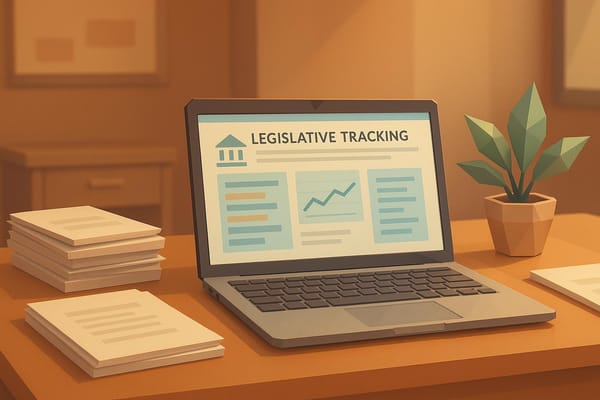New Bill Targets Machine Gun Possession
Alabama's SB31 tackles gun violence by penalizing machine gun possession, igniting debates on safety vs. Second Amendment rights.

The introduction of SB31 represents a significant movement in Alabama's legislative efforts to address gun control, specifically concerning the possession of machine guns. As gun violence continues to be a pressing concern across the United States, states are grappling with how to regulate firearms to ensure public safety. This bill proposes stringent penalties for individuals who knowingly possess machine guns, aligning with broader national trends aimed at reducing access to such lethal weapons.
This blog post will explore the critical elements of SB31, the definition it provides for a machine gun, its implications for criminal charges, exceptions to the law, and its projected impact on public safety in Alabama. By understanding the underlying factors that led to the introduction of this bill, you can better comprehend the ongoing debates surrounding second amendment rights and public safety.
Understanding the Definition of a Machine Gun
According to SB31, a "machine gun" is defined as any weapon capable of automatically firing more than one shot without manual reloading, triggered by a single function of the trigger. This definition is comprehensive, incorporating the weapon's frame or receiver, any part intended to convert a weapon into a machine gun, and parts that can be assembled into a machine gun.
This nuanced definition emphasizes the complexity of modern firearms technology, where even seemingly minor components can facilitate the rapid fire capabilities of weapons. The legislation takes a definitive stance on limiting the accessibility of these devices, citing the need for greater control following a spate of gun-related incidents in various locales.
Criminal Penalties for Violations
Under this proposed law, possessing a machine gun without requisite authorization will categorize the offense as a Class C felony. This classification underscores the seriousness with which the law treats illegal possession of such firearms.
A violation of subsection (b) is a Class C felony.
This criminalization aims to deter individuals from engaging in the possession of these dangerous weapons, although questions arise regarding the efficacy of such measures as a means to curb gun violence overall. Felony charges carry severe consequences, including potential imprisonment, further complicating the landscape for individuals who may possess firearms legally.
Exceptions to the Law
The legislation does provide exceptions for certain individuals, notably state or local law enforcement officers acting in their official capacity and those who own machine guns legally under federal law. This delineation highlights the law's aim to respect lawful actions by enforcement agencies while tightening regulations for civilians.
These exceptions raise discussions about the implications and influences of law enforcement on firearm regulations. Can officers maintain public safety while adhering to guidelines that may seem contradictory? Allowing law enforcement exemptions reflects a common practice in many states but still leads to debates on accountability and public trust.
Timeline and Implementation of SB31
SB31 is scheduled to take effect on October 1, 2025. This timeline provides a substantial window for public education on the new regulations and for those impacted by the law to adjust accordingly. It also allows lawmakers to refine and potentially revise the bill based on public feedback and evolving societal norms surrounding gun ownership.
Such lead time could be advantageous for advocacy groups championing both firearms rights and gun control, facilitating dialogue and increasing awareness of the law's consequences.
Future Implications for Alabama
The passage of SB31 may signify a pivotal shift in Alabama’s approach to gun law, reflecting growing concerns over gun violence. By restricting machine gun possession, the state aims to foster an environment that prioritizes public safety over unfettered access to high-capacity firearms.
However, the law will undoubtedly face scrutiny from gun rights advocates, who may argue that such measures infringe upon Second Amendment rights. The ongoing push and pull between safety measures and firearm freedoms highlights the complexity of achieving a balanced approach to legislative action surrounding firearms.
The Role of Public Opinion
As SB31 gains attention, public opinion plays a crucial role in shaping its trajectory. Public sentiment towards gun control continues to fluctuate, often ignited by tragic events that thrust gun violence into the national spotlight. Understanding how Alabamians feel about machine gun regulations will be crucial in determining the law's support and longevity.
Moreover, advocacy groups on both sides are likely to mobilize, shaping the discourse ahead of the 2025 implementation. The voices of constituents will be significant as ultimately, they have the power to influence lawmakers to either uphold or revisit such legislation.
Conclusion
The SB31 bill stands as an important development in Alabama's legislative landscape concerning gun control. By prohibiting the knowing possession of machine guns, the legislation aims to bolster public safety and respond to the broader concern of gun violence. With its specific definitions and criminal penalties in place, the bill is designed to deter illegal possession and construction of dangerous firearms.
In summary, the implications of this bill will unfurl as it moves toward implementation, facing public scrutiny, as well as legislative and judicial challenges. The discourse surrounding SB31 embodies the complex relationship between gun rights and public safety—a dialogue that continues to evolve within Alabama and across the nation.




